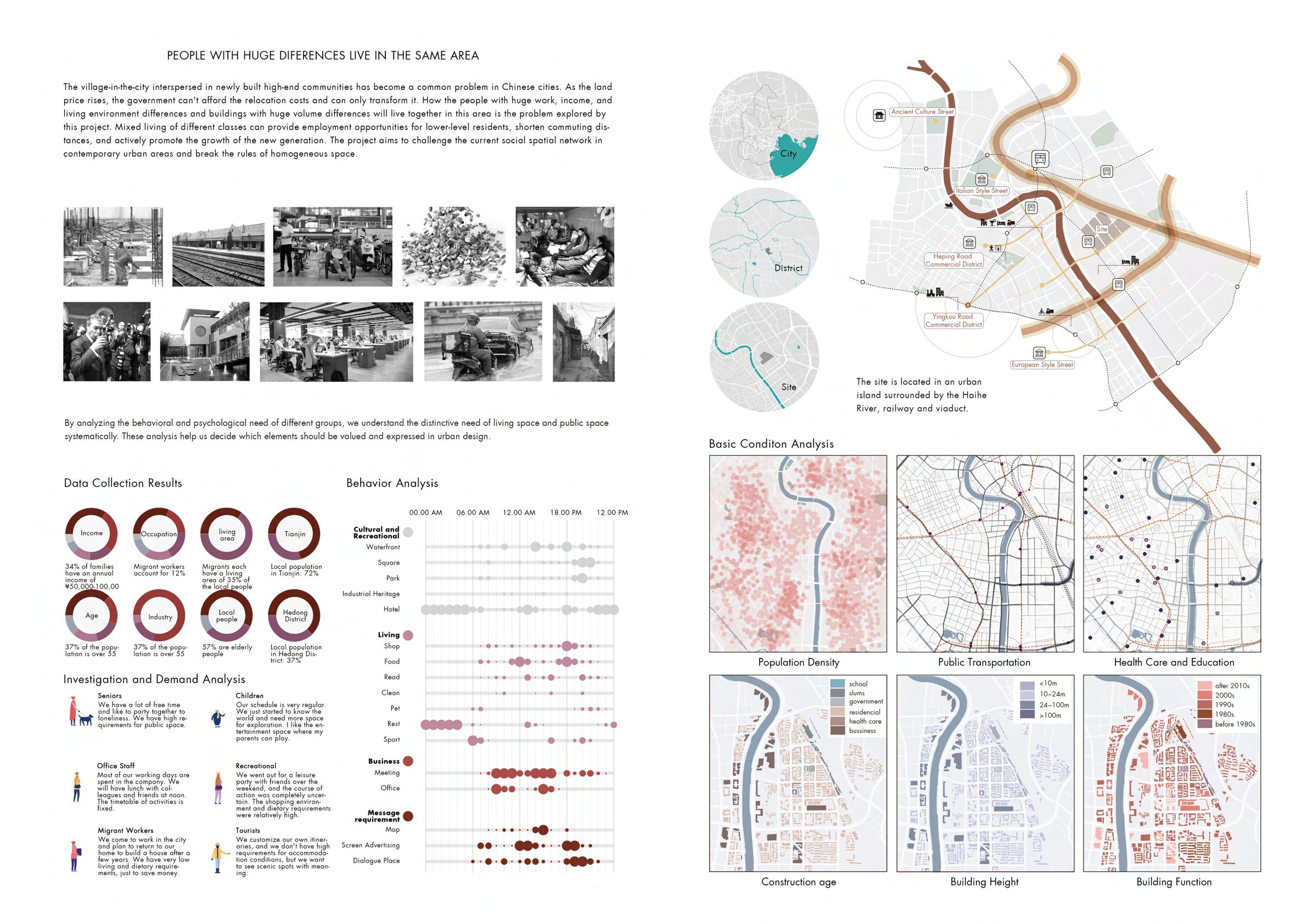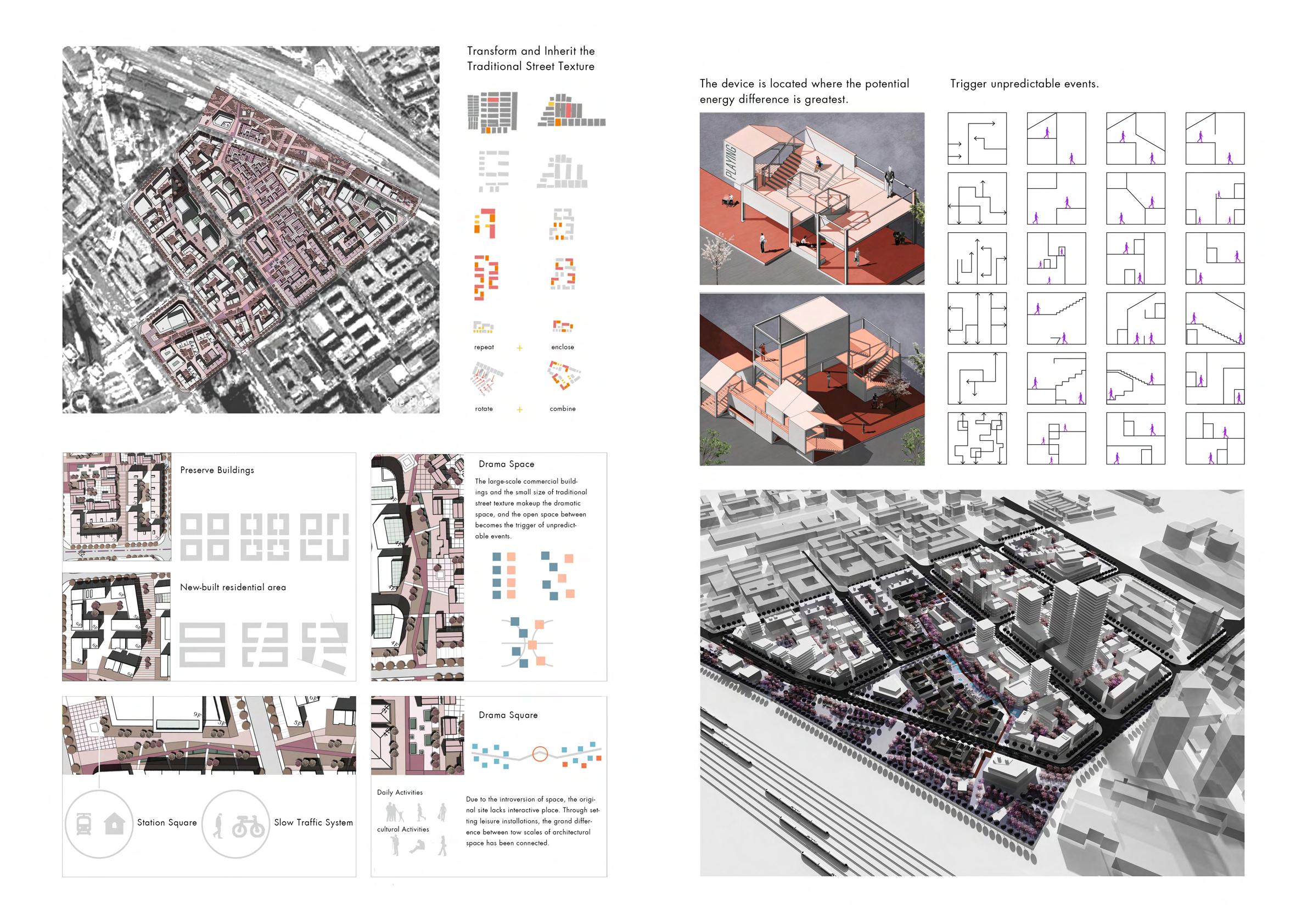PORTFOLIO.2019

LANDSCAPE URBANISM
Yutong QIU
Email: yutong19418@163.com
01
CONTENT
02
03
04


PORTFOLIO.2019

LANDSCAPE URBANISM
Yutong QIU
Email: yutong19418@163.com
01
02
03
04

Individual Work
2019.06-2019.08
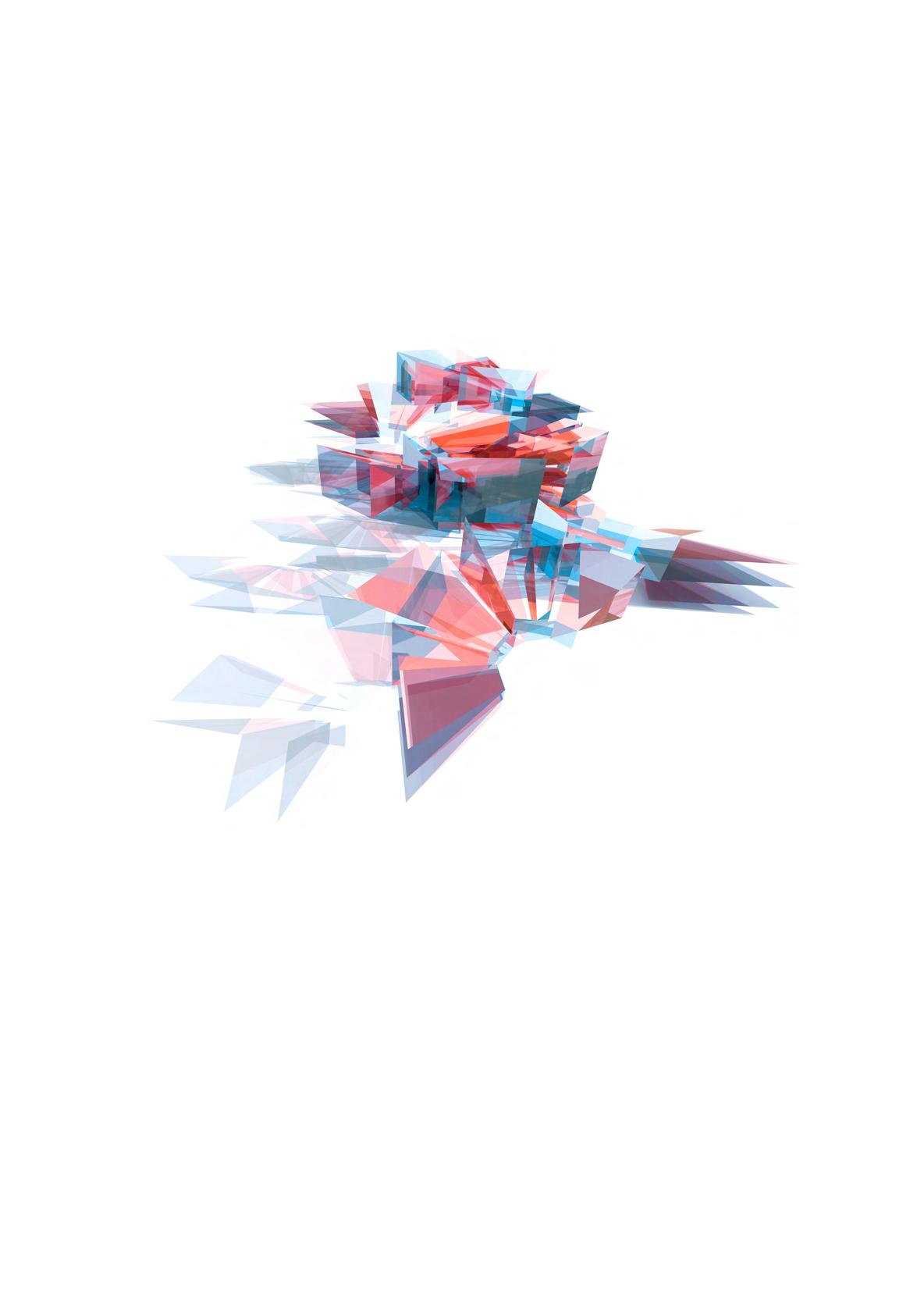
In the early 17th century, a large number of Chinese ceramics arrived in the Netherlands, which directly stimulated the Netherlands potters to imitate the blue and white in Jingdezhen, China. In the process of the interweaving influence of Eastern and Western cultures, a unique artistic style gradually formed-Delft tin glaze blue pottery.
When viewing the decorative painting on the surface of porcelain, the picture presents multiple visual focus points with the rotation of the vase. This viewing method can be compared to the experience of watching long scrolls. At the same time, it is completely different from the fixed-point and accurate perspective viewing methods of western oil painting.
The viewpoint at the top of the Oldehove tower in Leeuwarden provides a fixed perspective viewing point based on the Dutch perspective school ’s observation method. Meanwhile, walking through the constructed installation in the front square, the scattered point perspective observation method of Chinese long scroll painting can be used to experience a continuous space.
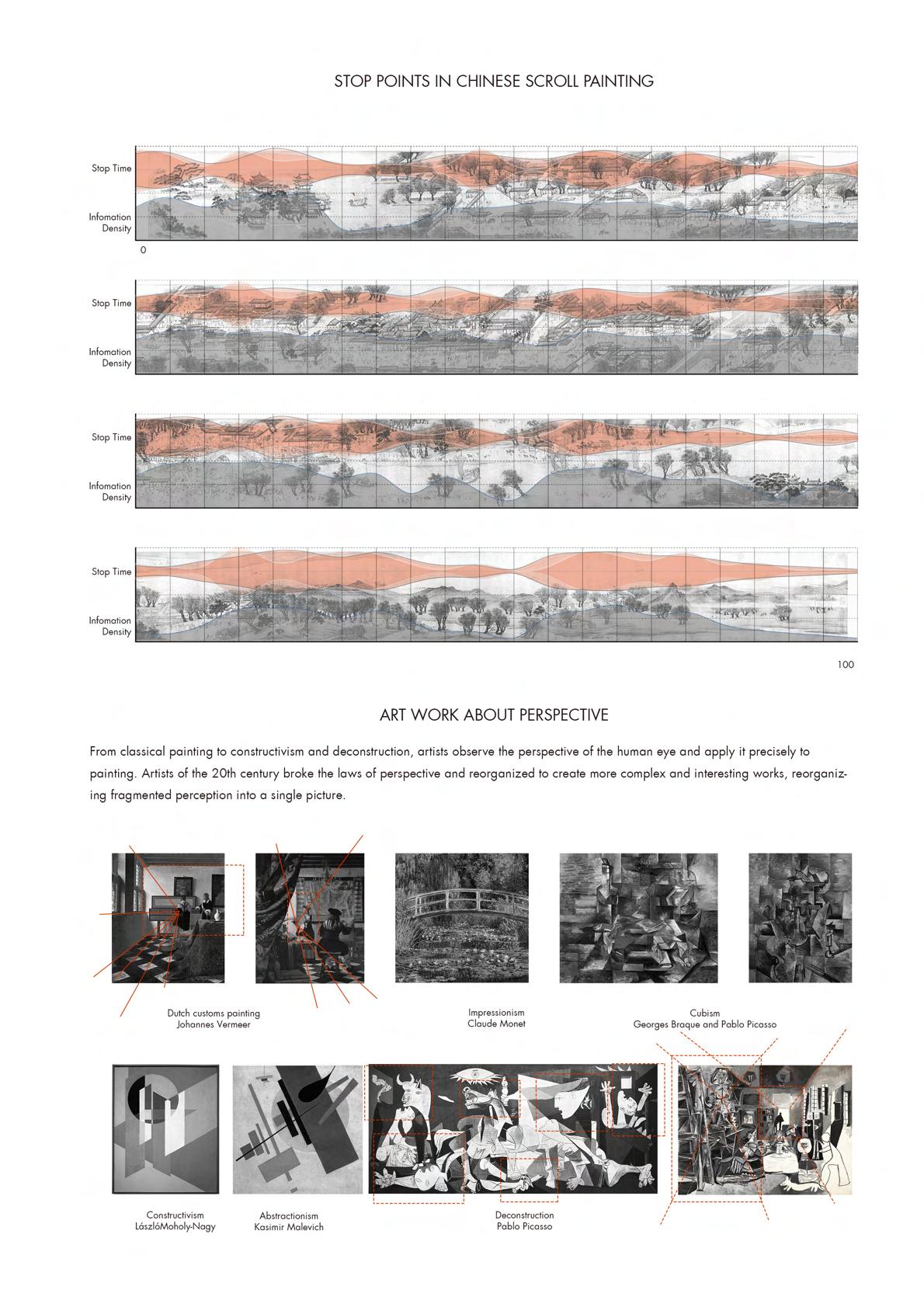
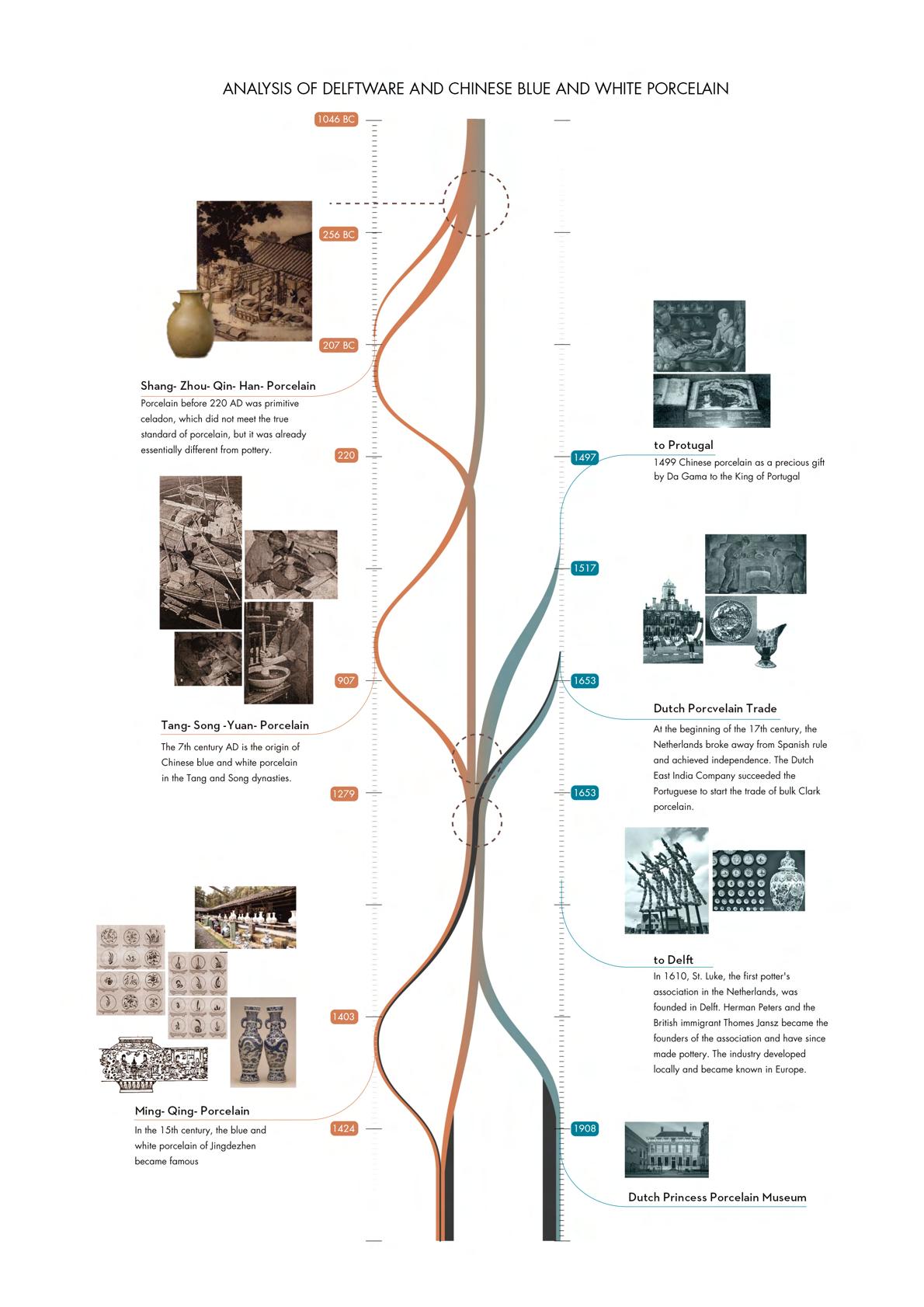
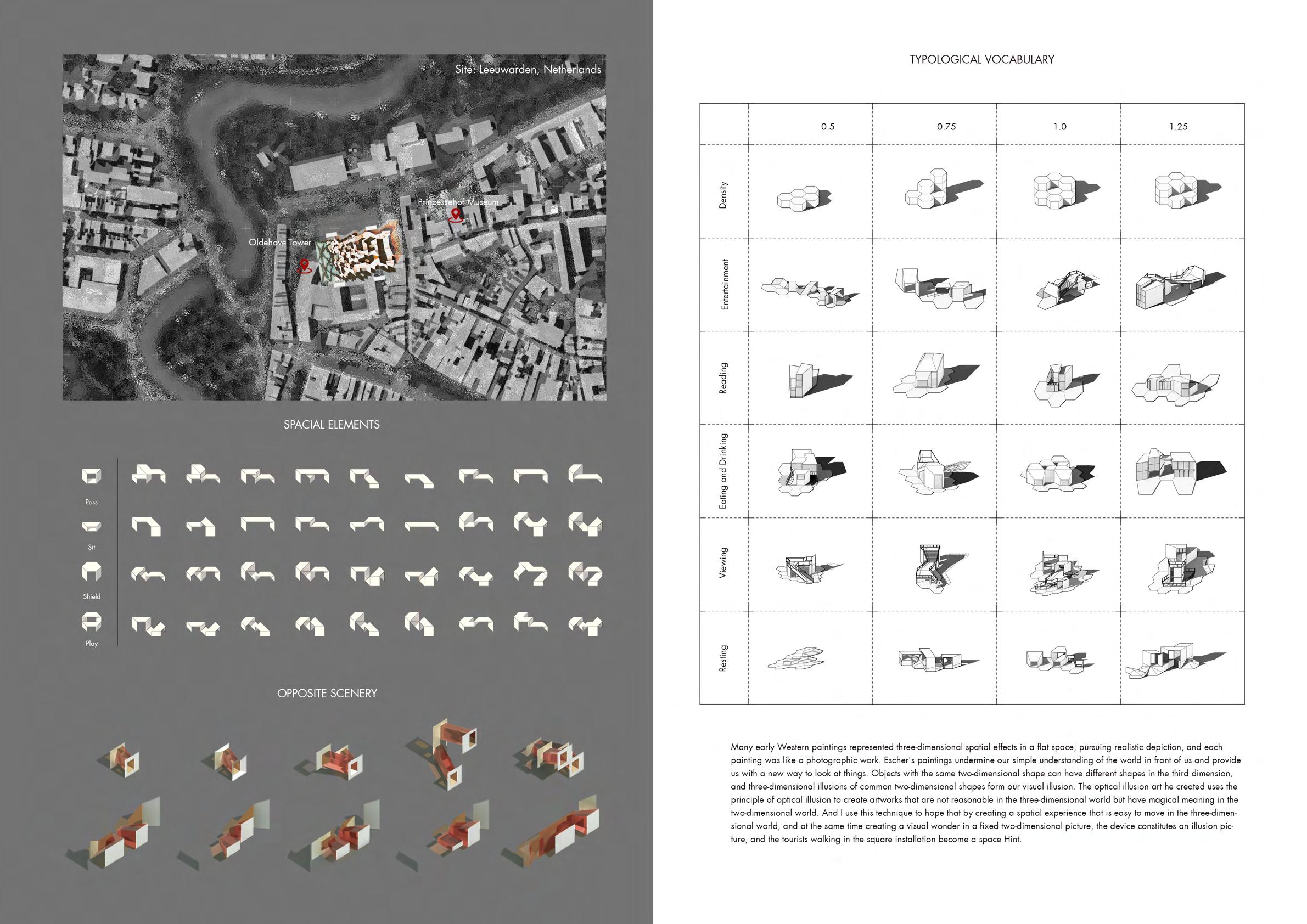
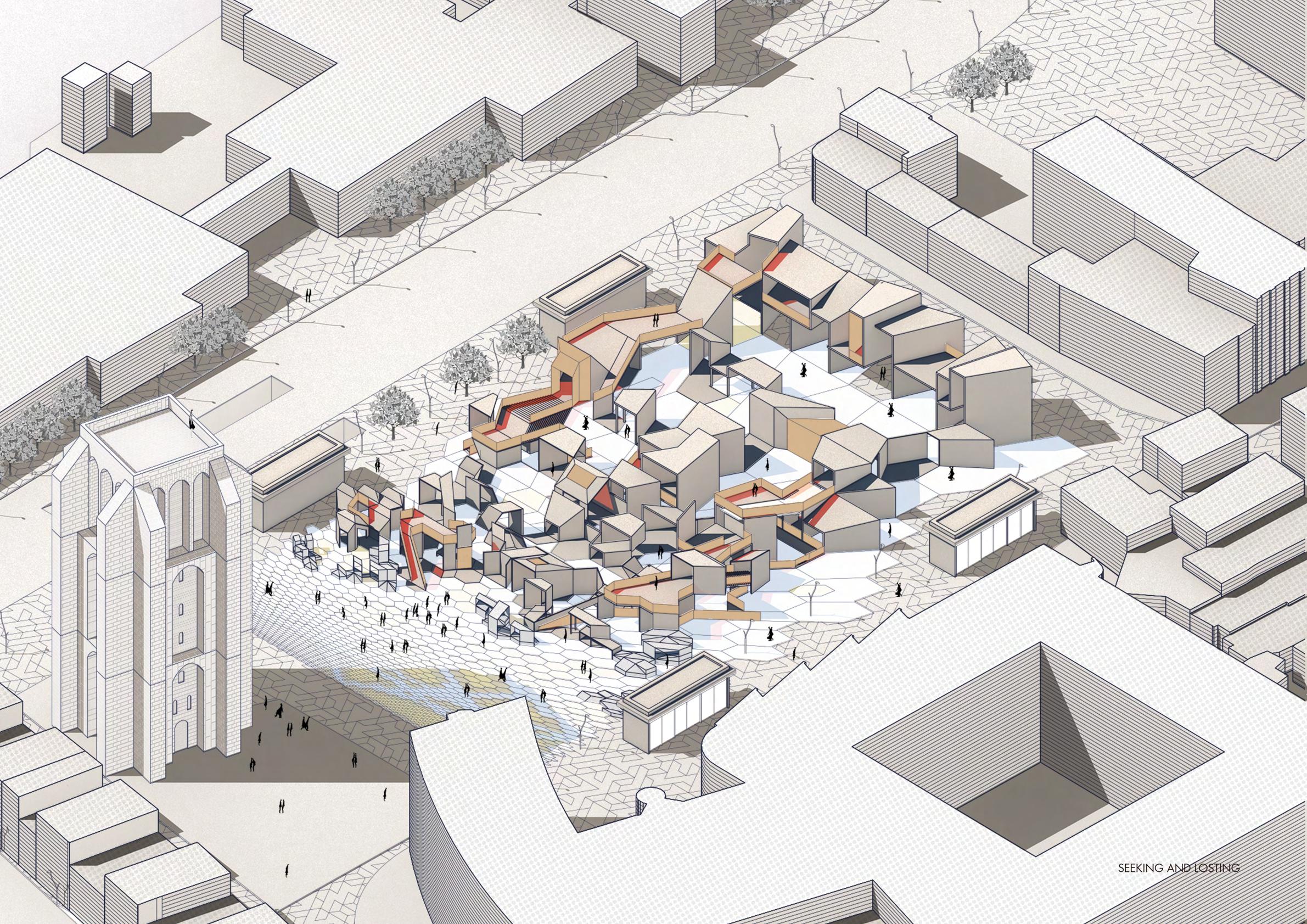
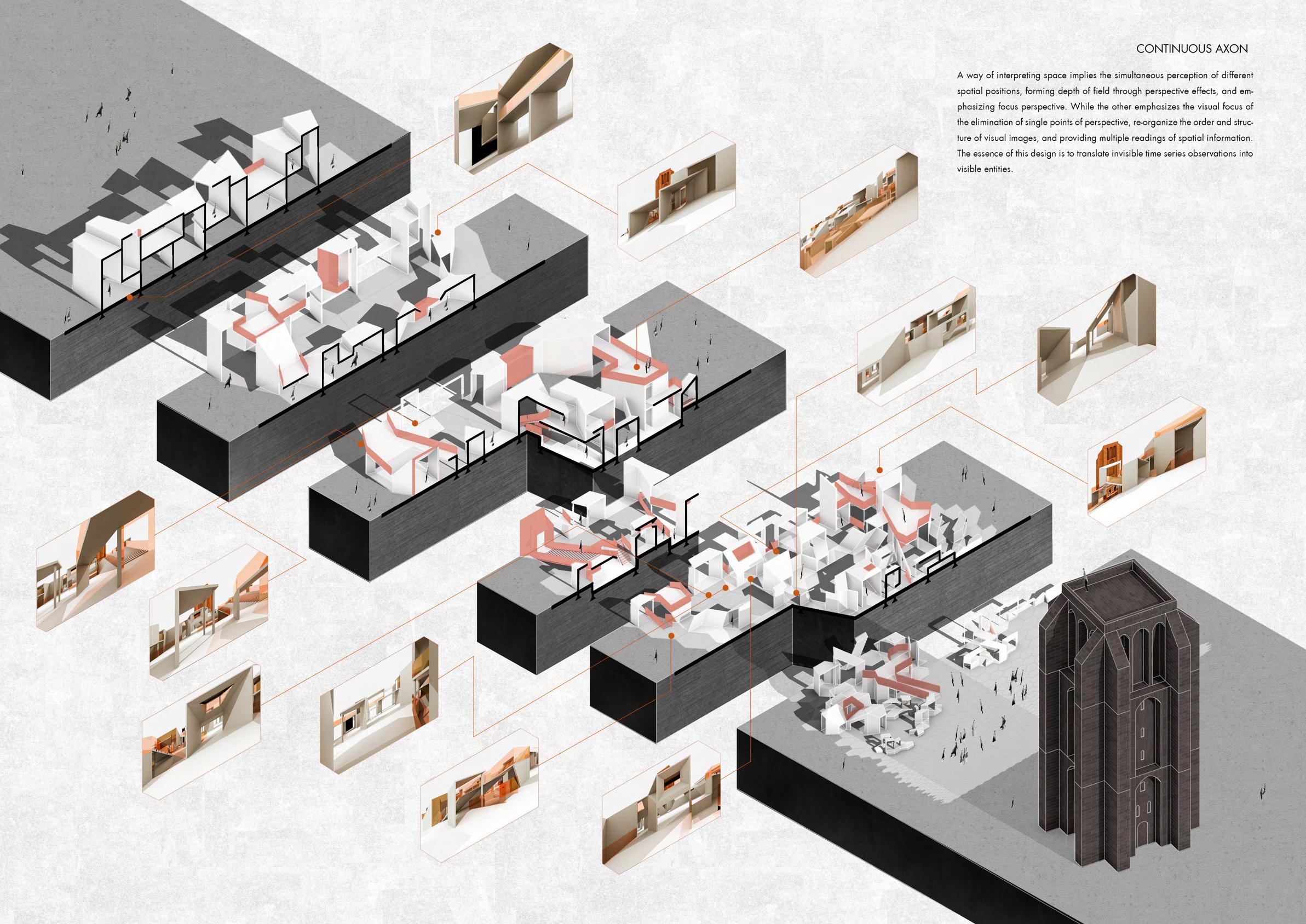
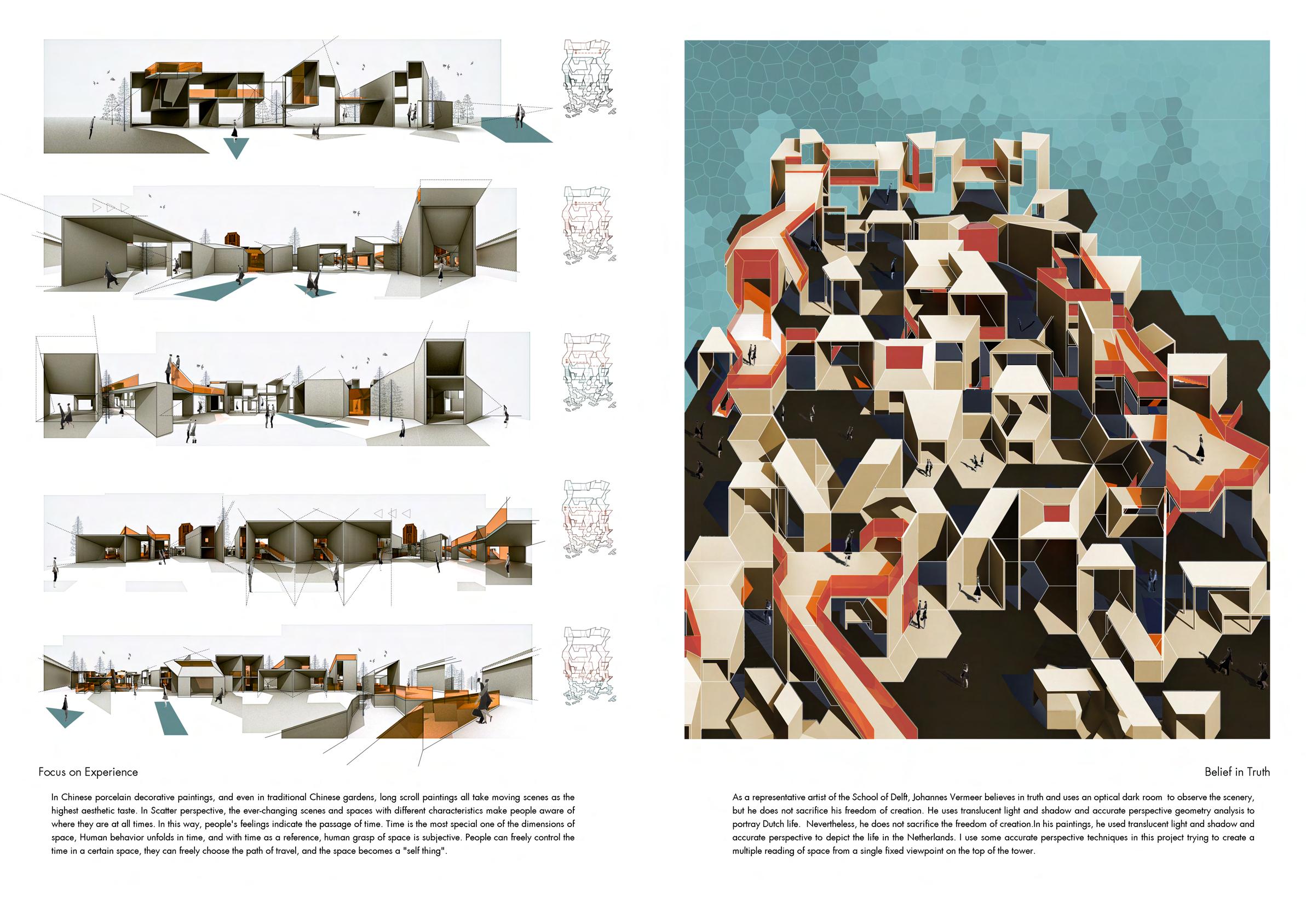
Kucha, Xinjiang Province, China
Individual Work
2019.02- 2019.06
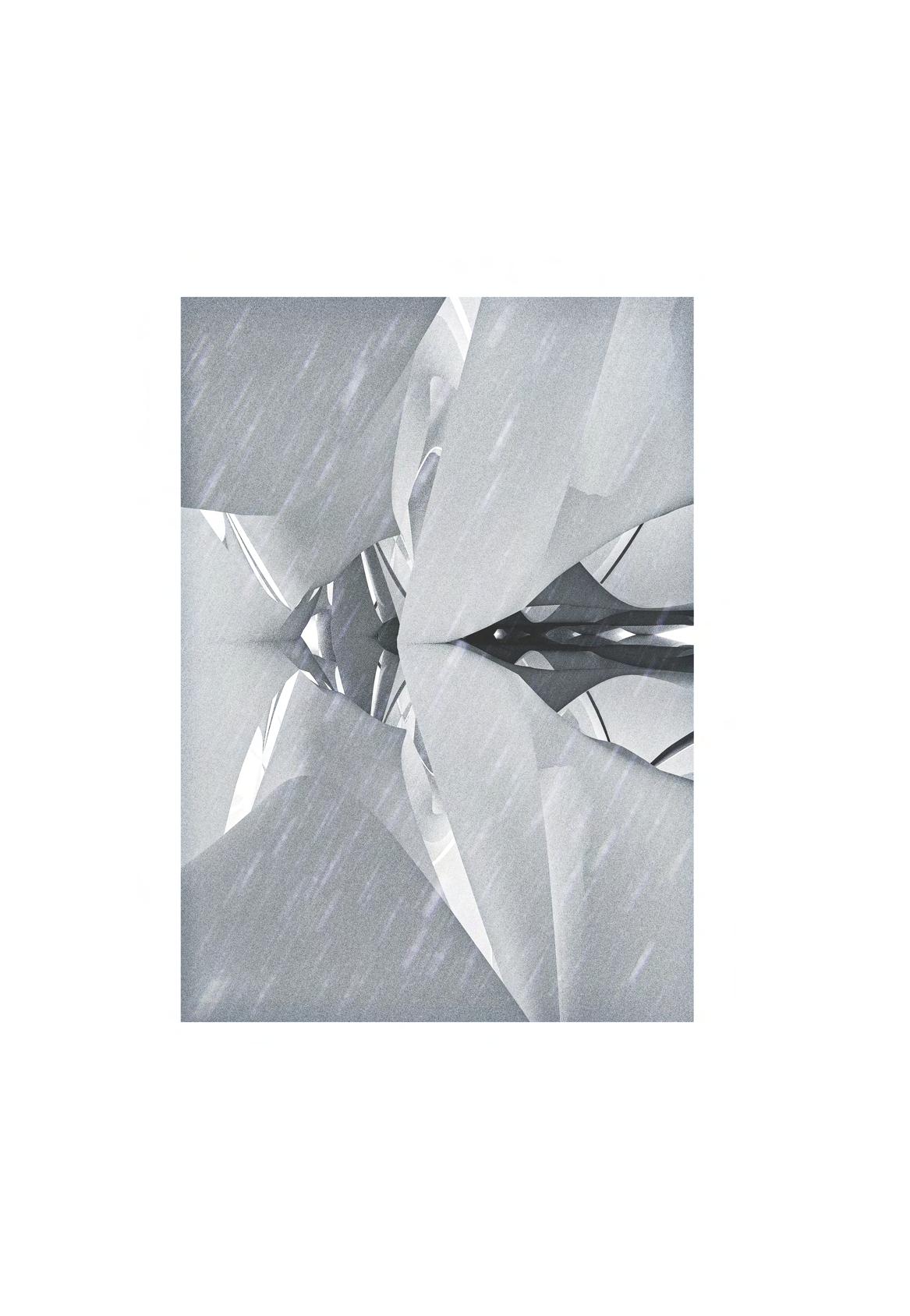
People's conflicts over values, scarce status, rights and resources have led to social conflicts and religious conflicts. In Islam, because idolatry is forbidden, the worshippers symbolize their faith in their words and buildings. Some regions have experienced religious wars that have changed their religious beliefs, but this does not completely remove the decorative patterns admired by that religious belief.
This project extracts geometric elements from religious buildings and re-translates them, concealing the gradual geographical change of architectural symbols in a religious museum located in a multi-ethnic, multireligious and coexisting place in Xinjiang, China. It is used to express that culture and religion are gradual in terms of geography, rather than opposite in nature.
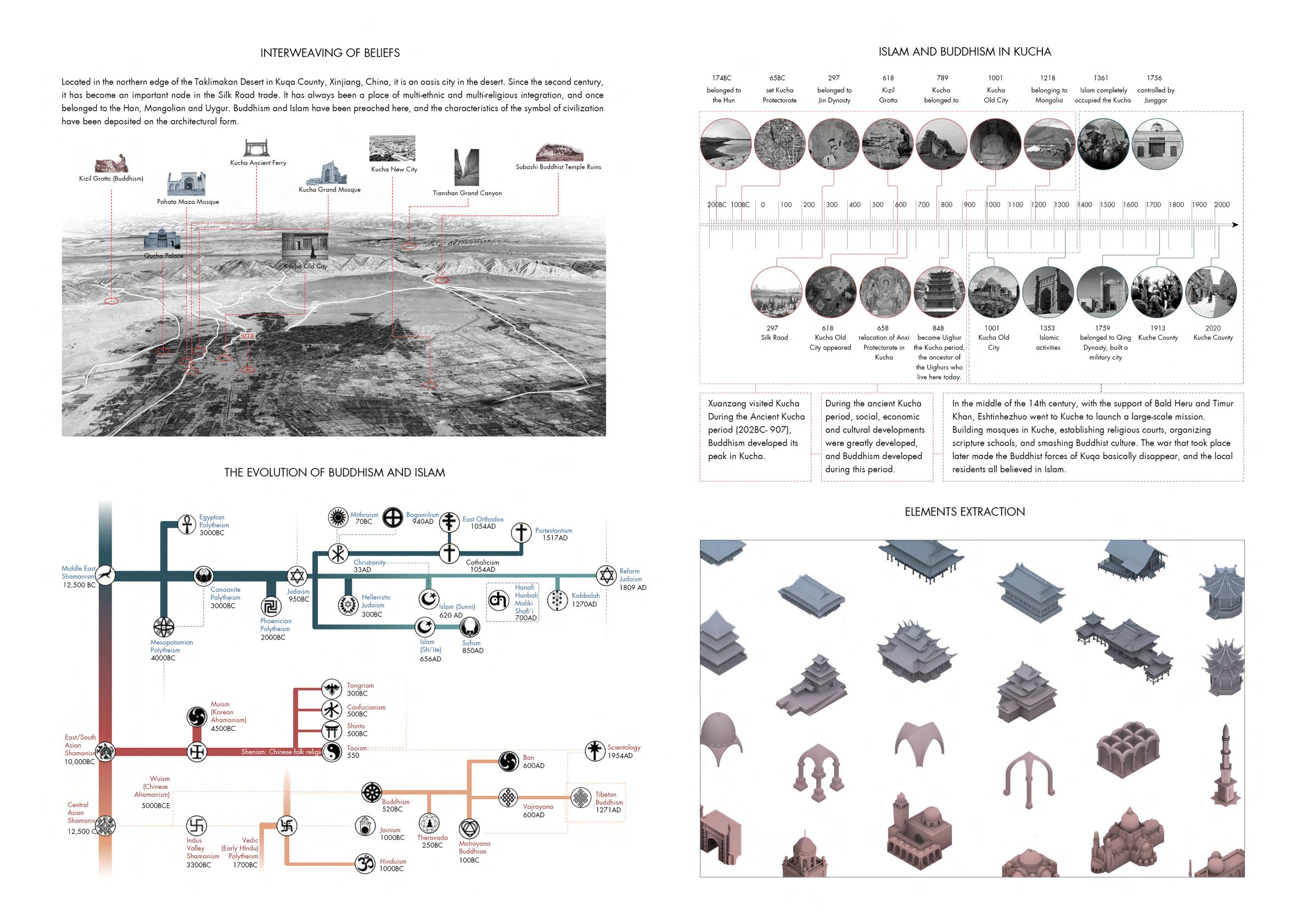
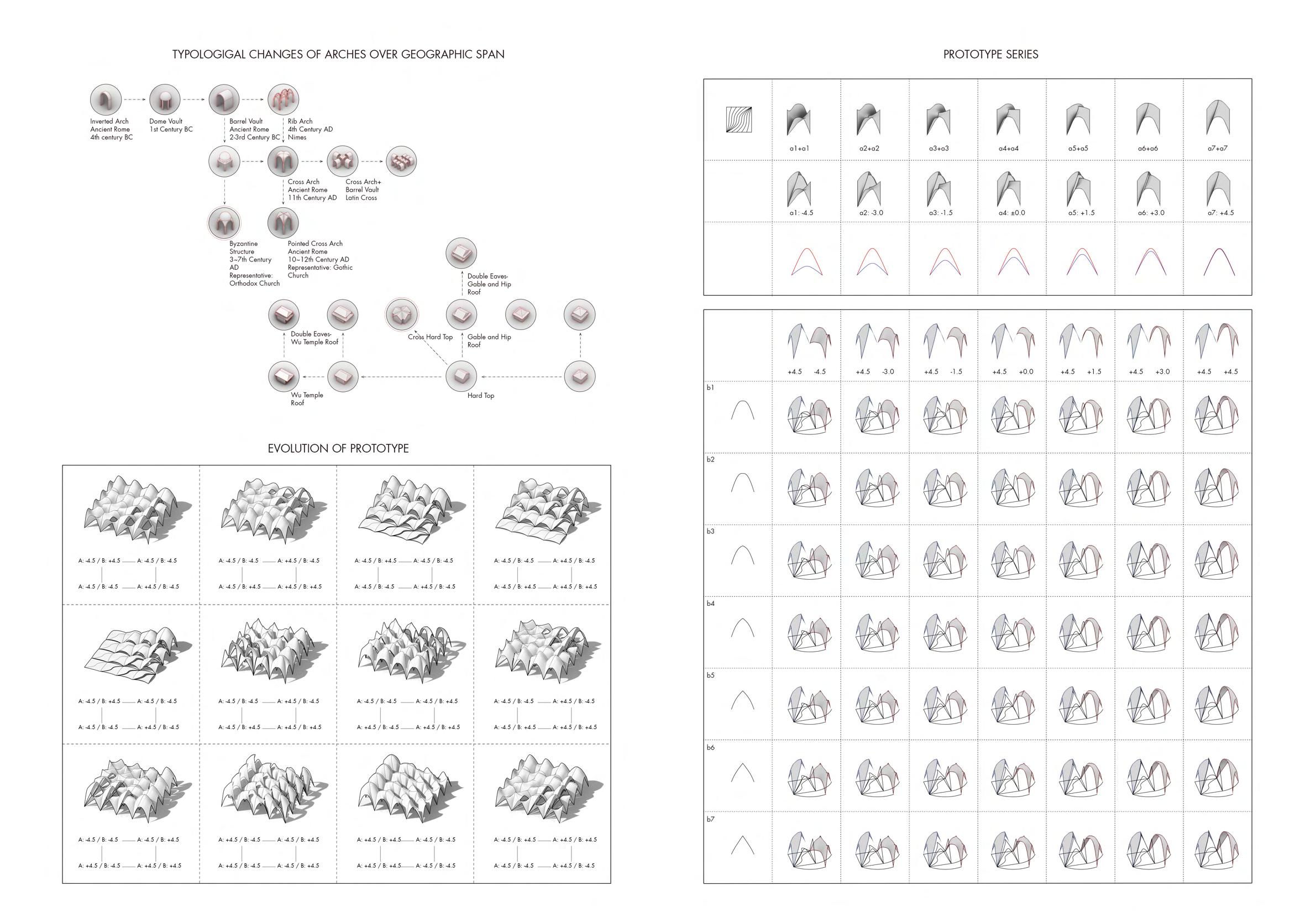
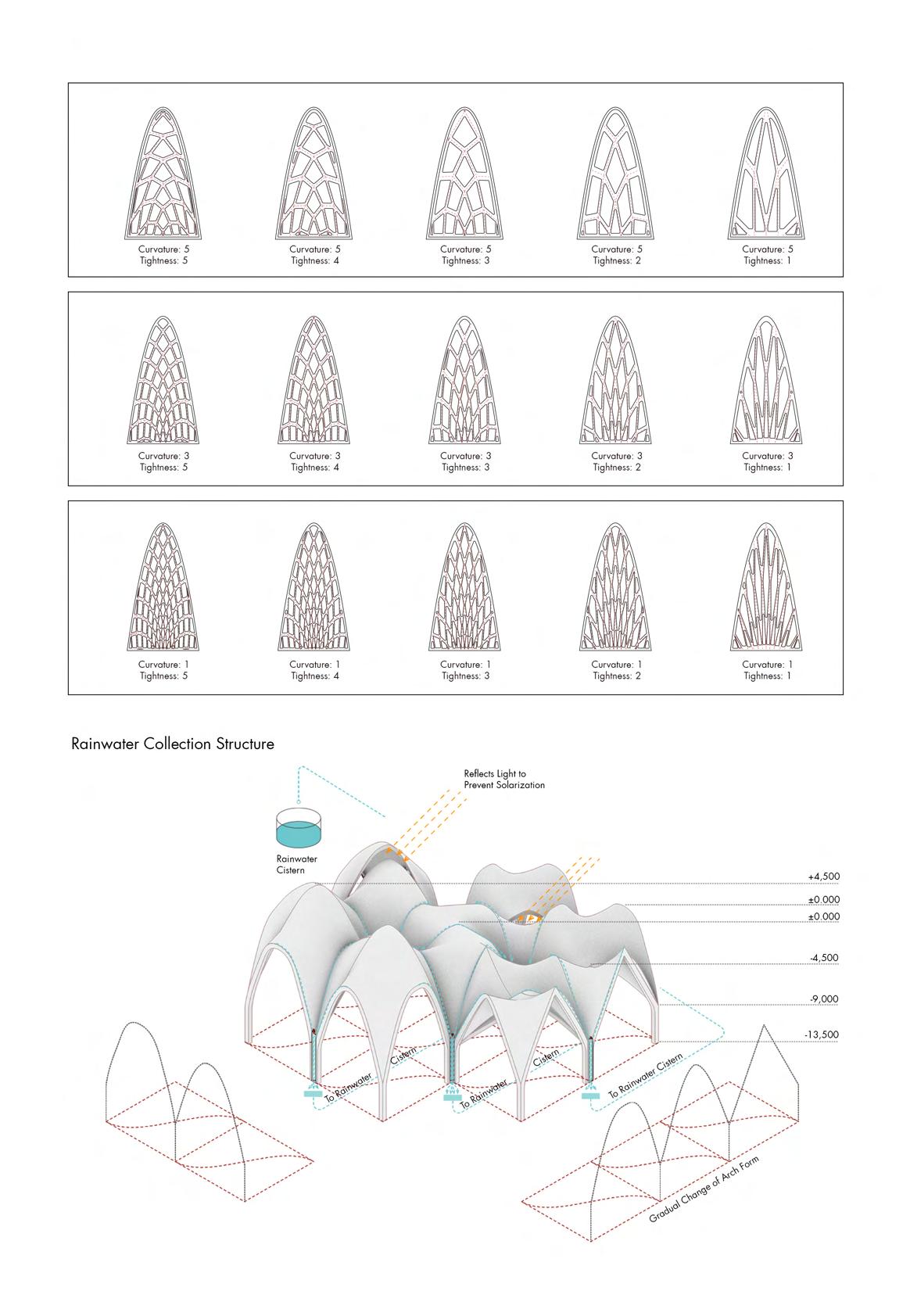
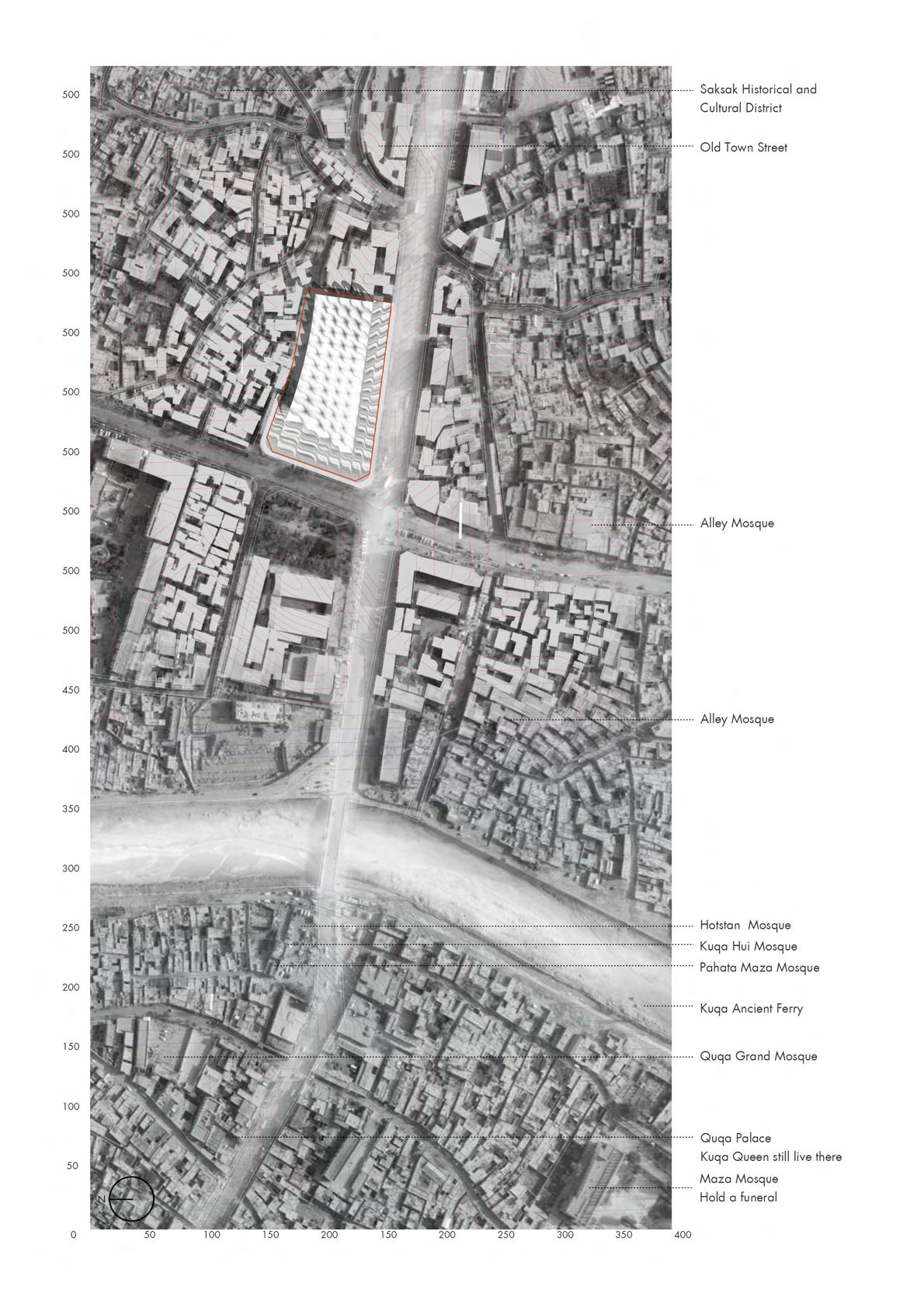
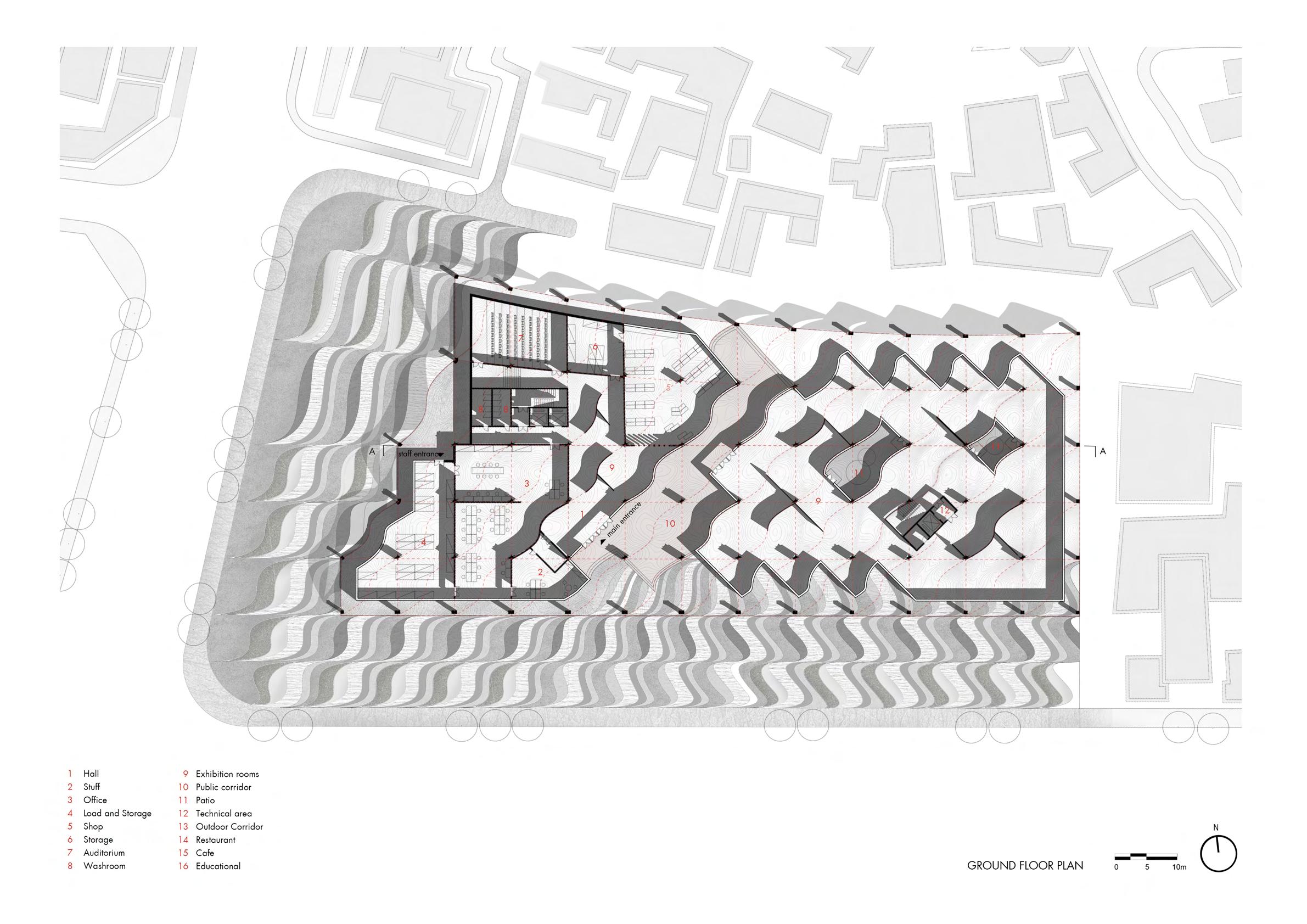
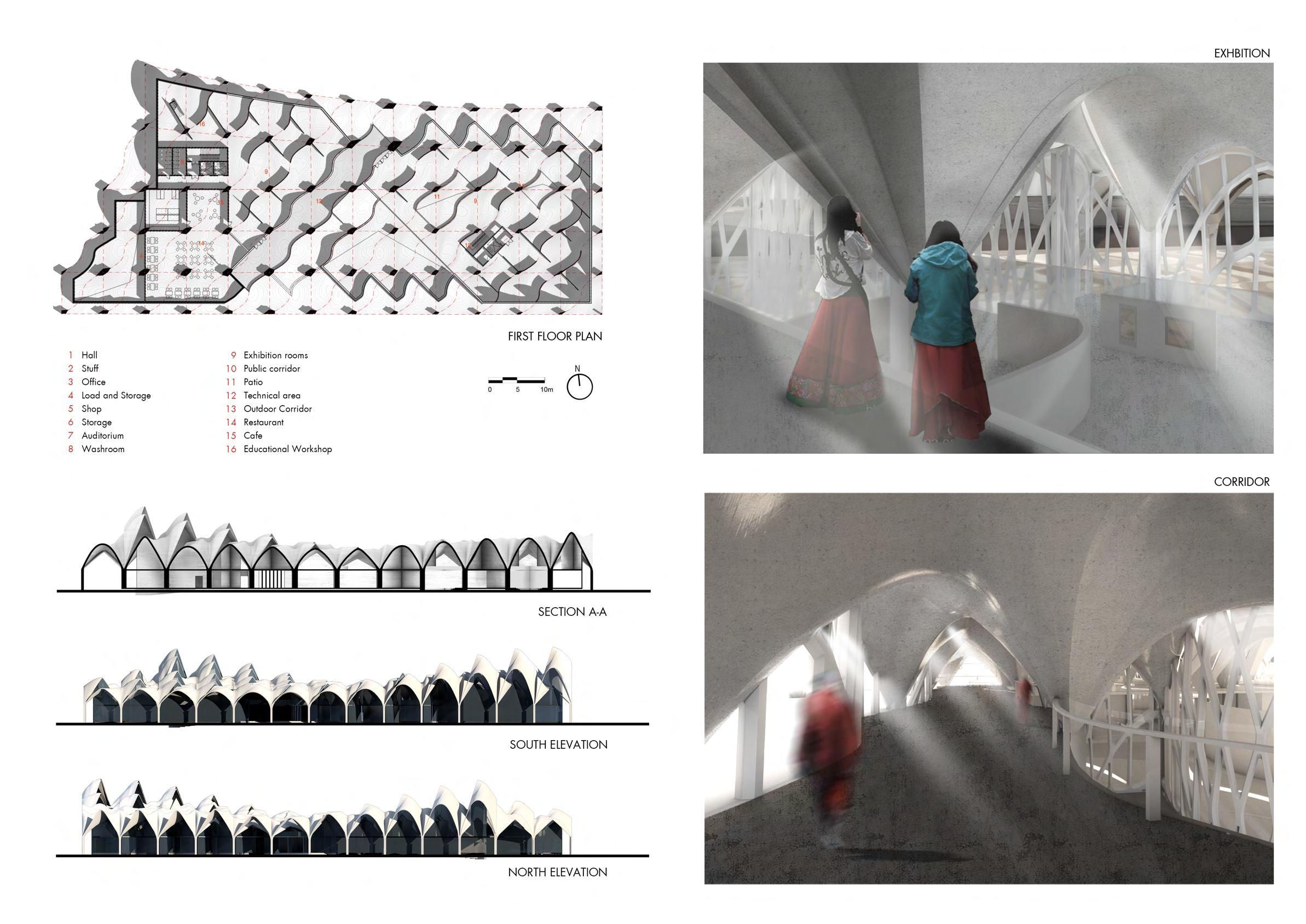
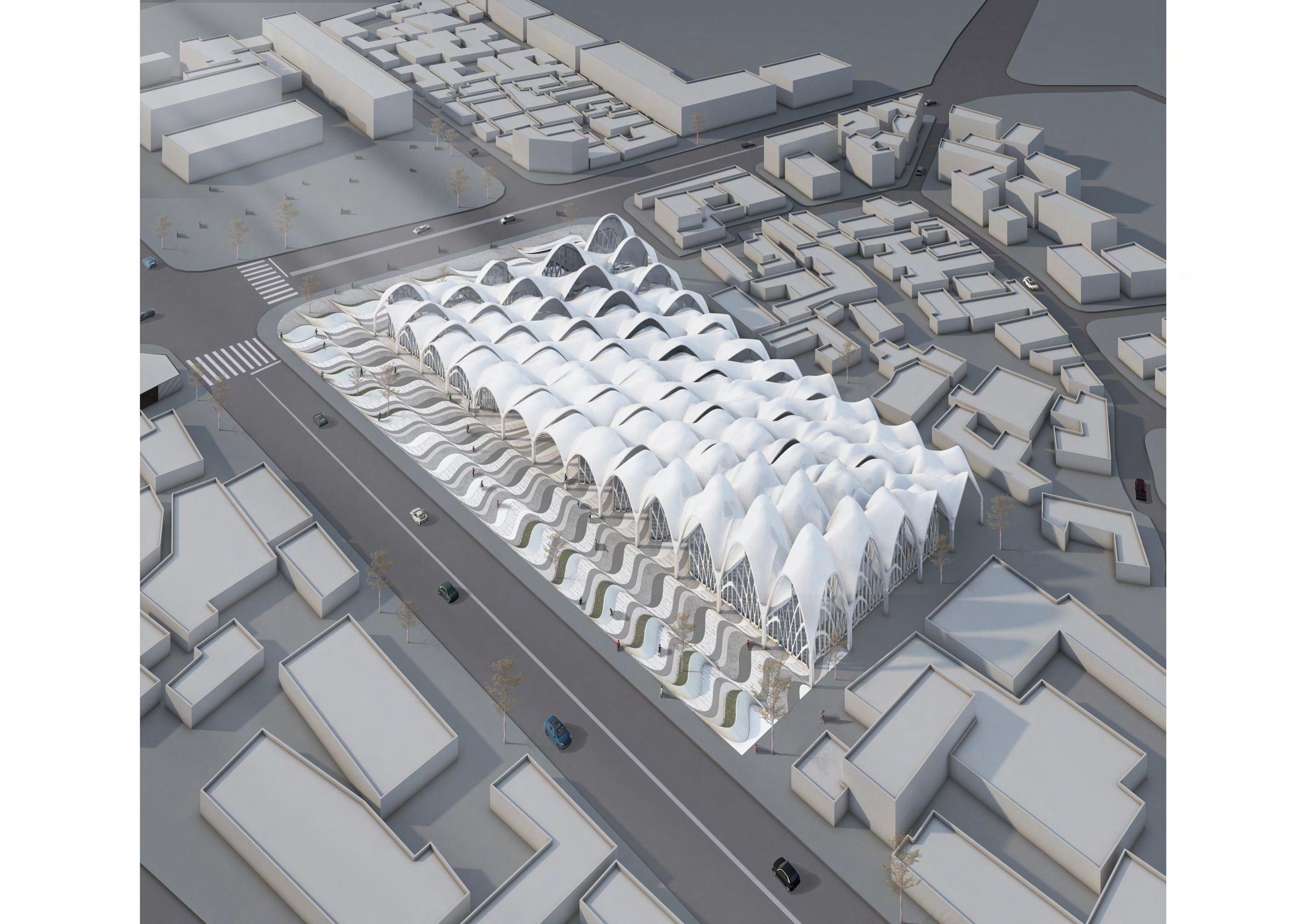
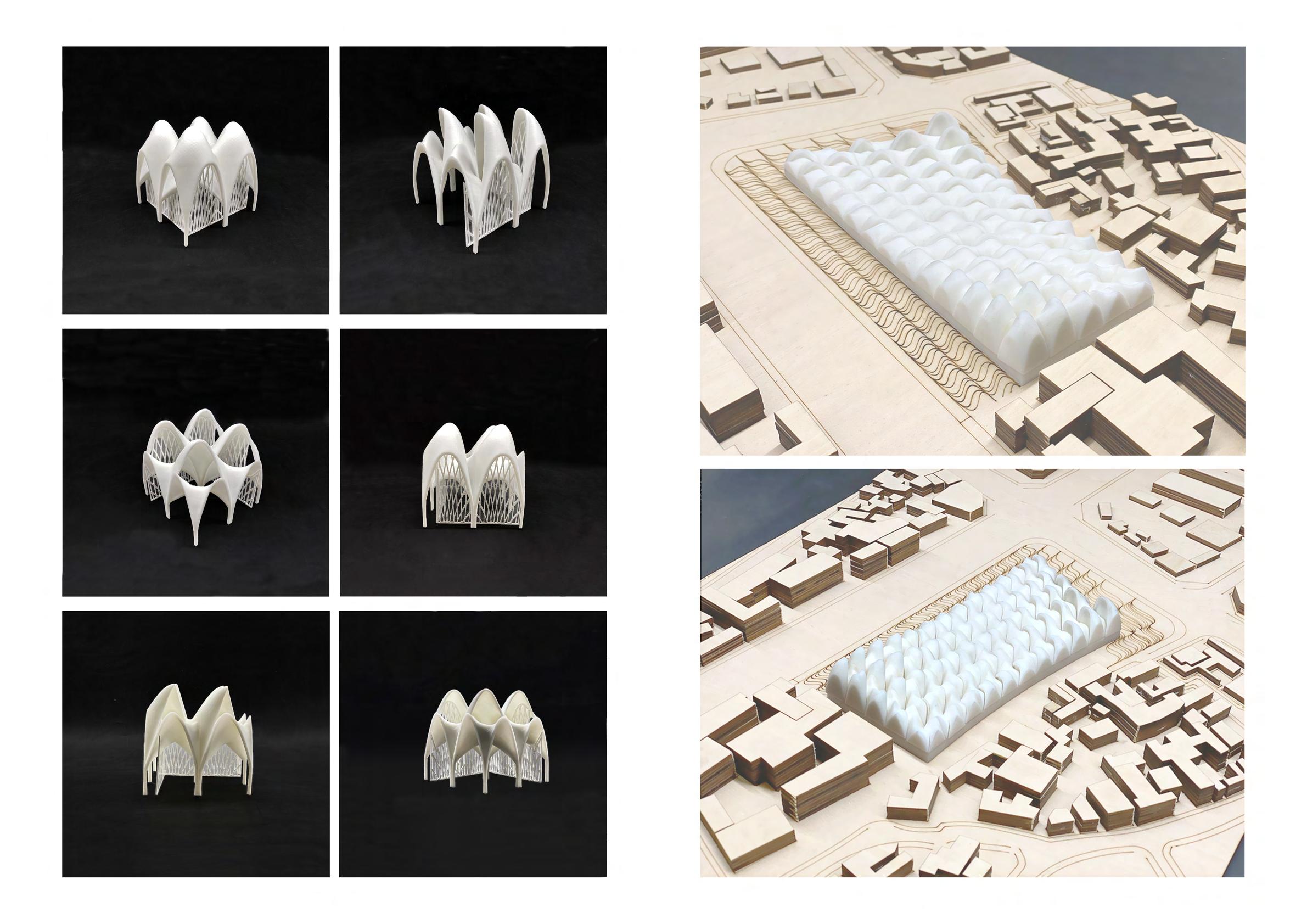
Heping District, Tianjin, China Team Work
Team Member: Yutong Qiu, Bingkun Liu 2019.09- 2019.12
This project hopes to establish a system of geometric figure change, and hopes to be able to manipulate the changes of the building shape according to this change system.
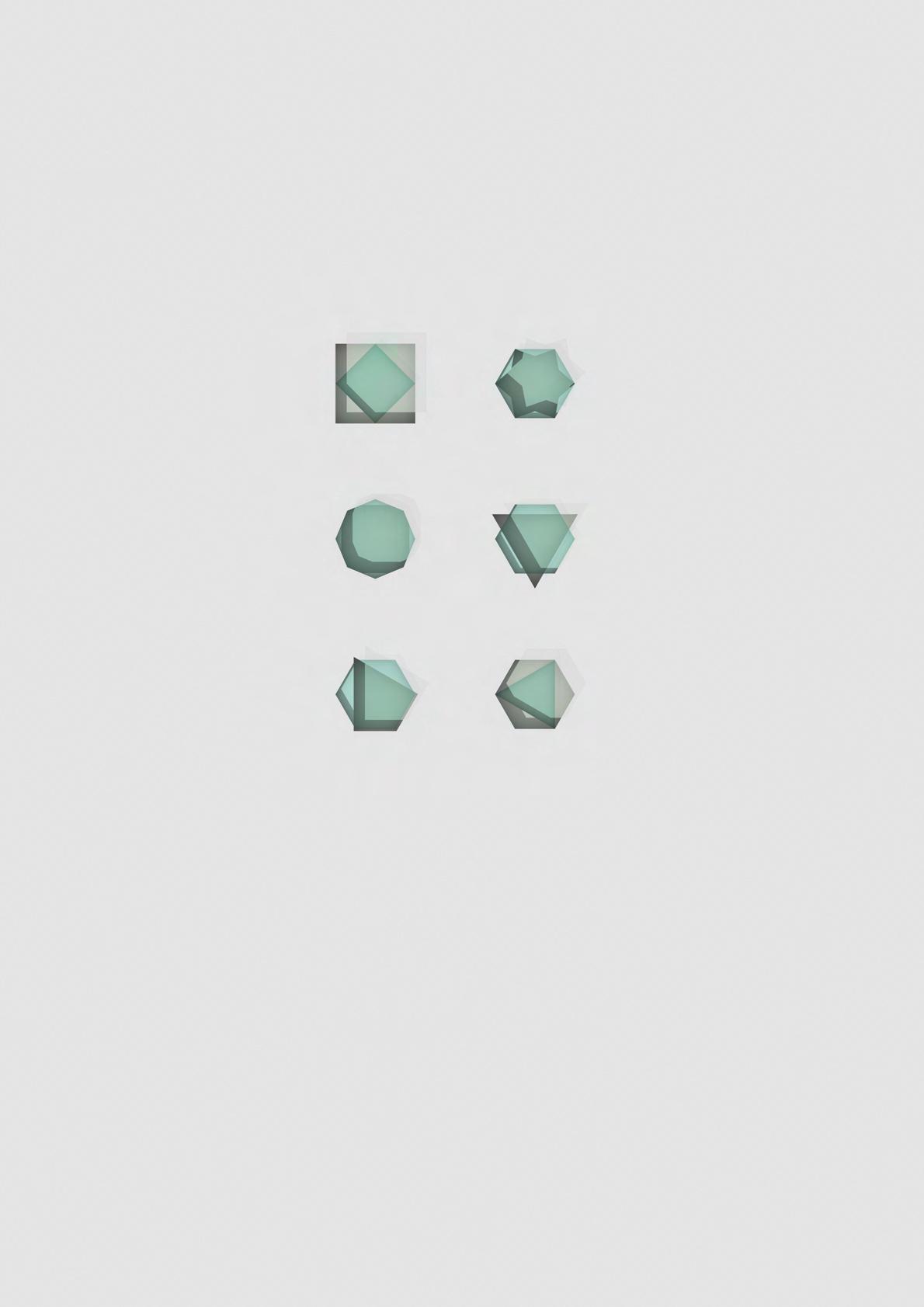
Based on the analysis of the existing building shape, we have obtained two systems: the plane change system and the change rule in the time dimension. We normalized the functions of these two systems and obtained a set of three-dimensional solid tables. The change between the three dimensional vectors of this table can control the speed and proportion of the architectural plane's points.
Finally, we designed a super high-rise office building based on the geometric change rules we obtained and the data and task books obtained from the artificial neural network training.
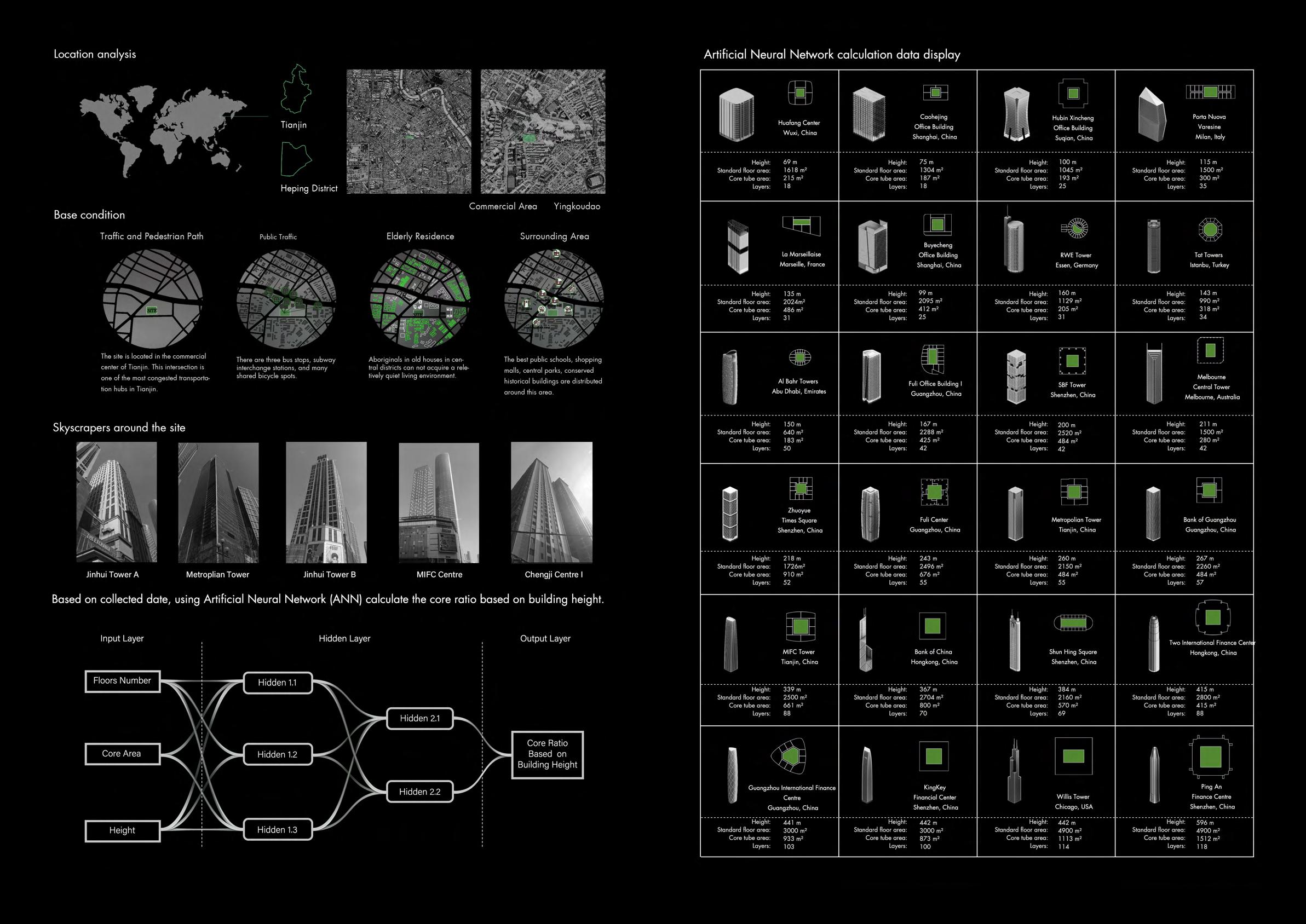
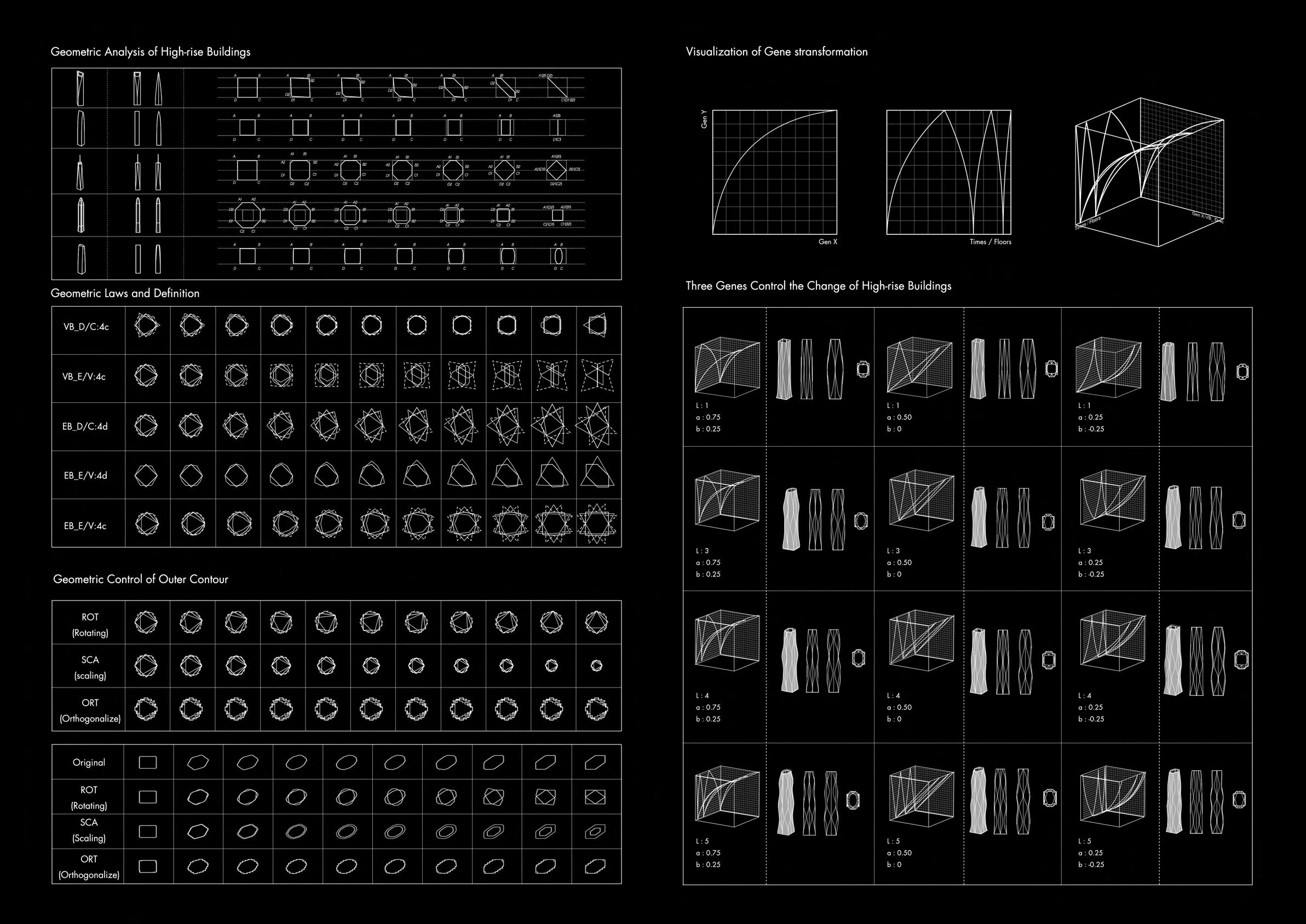
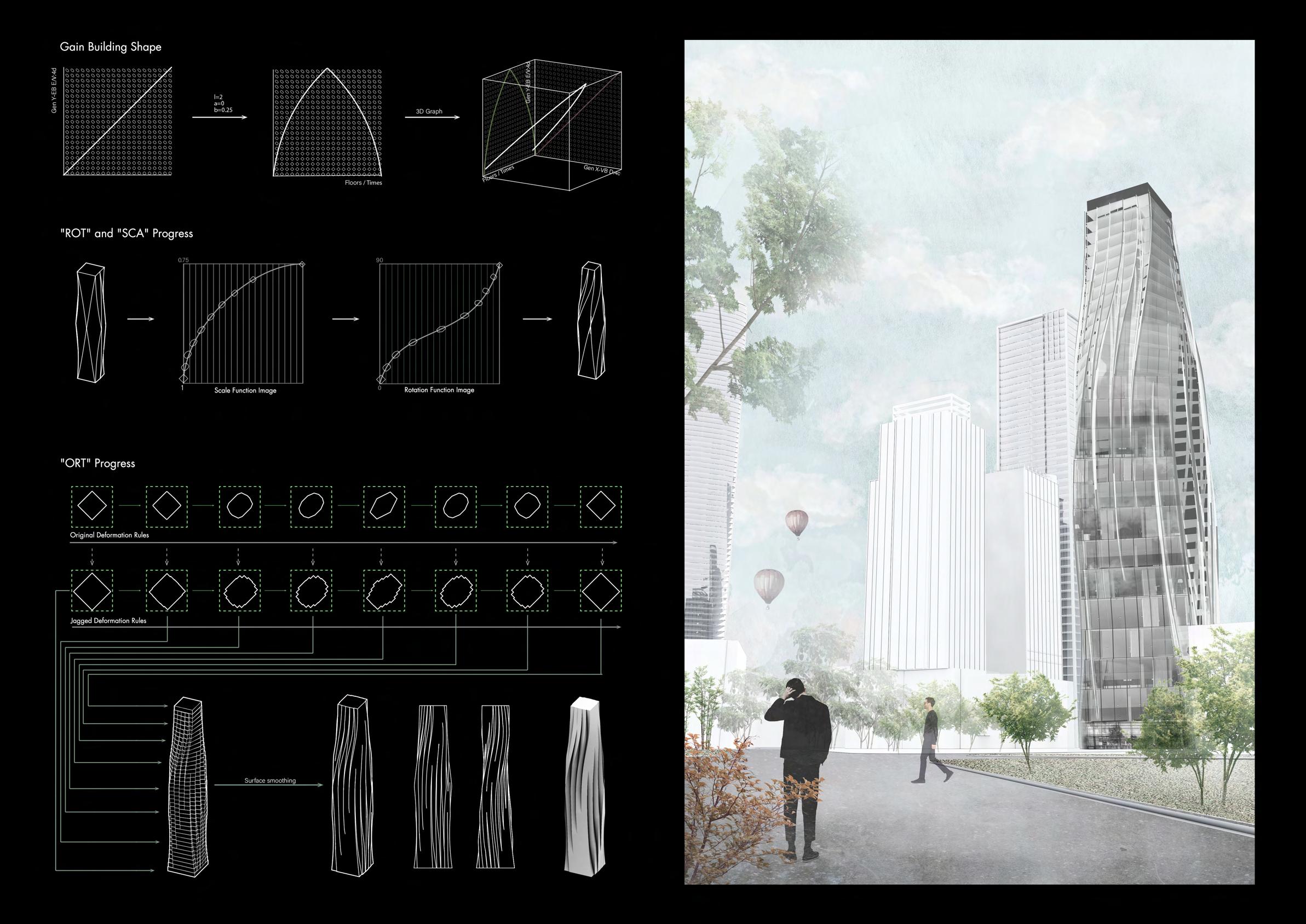
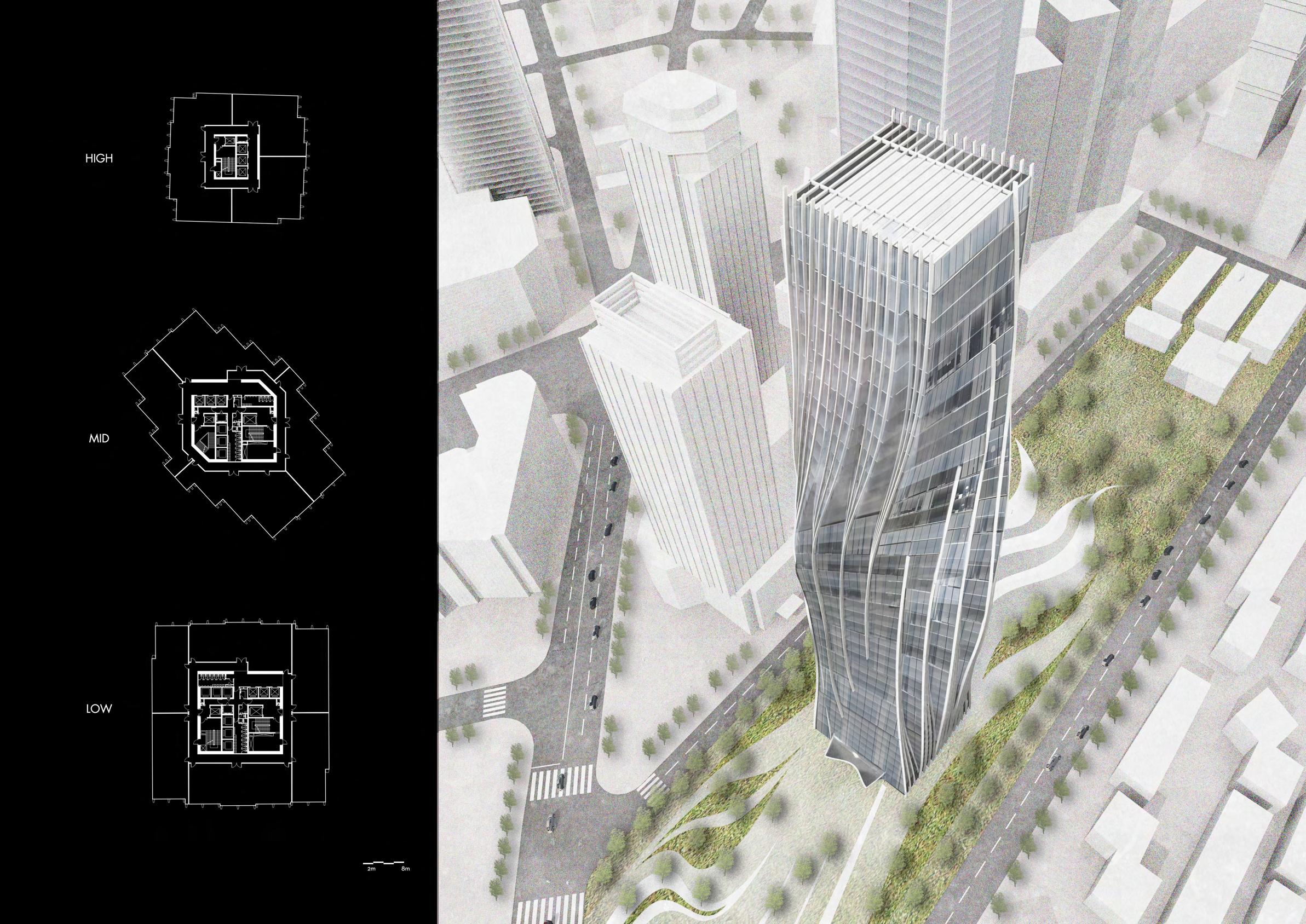
Hedong District, Tianjin, China Team Work
Team Member: Yutong Qiu, Shuyao Gong 2017.09- 2017.10
This project aims to challenge the current social spatial network in contemporary urban areas and break the rules of homogeneous space. Let people with huge differences in work, income, and living environment and buildings with huge differences in size coexist in this area.
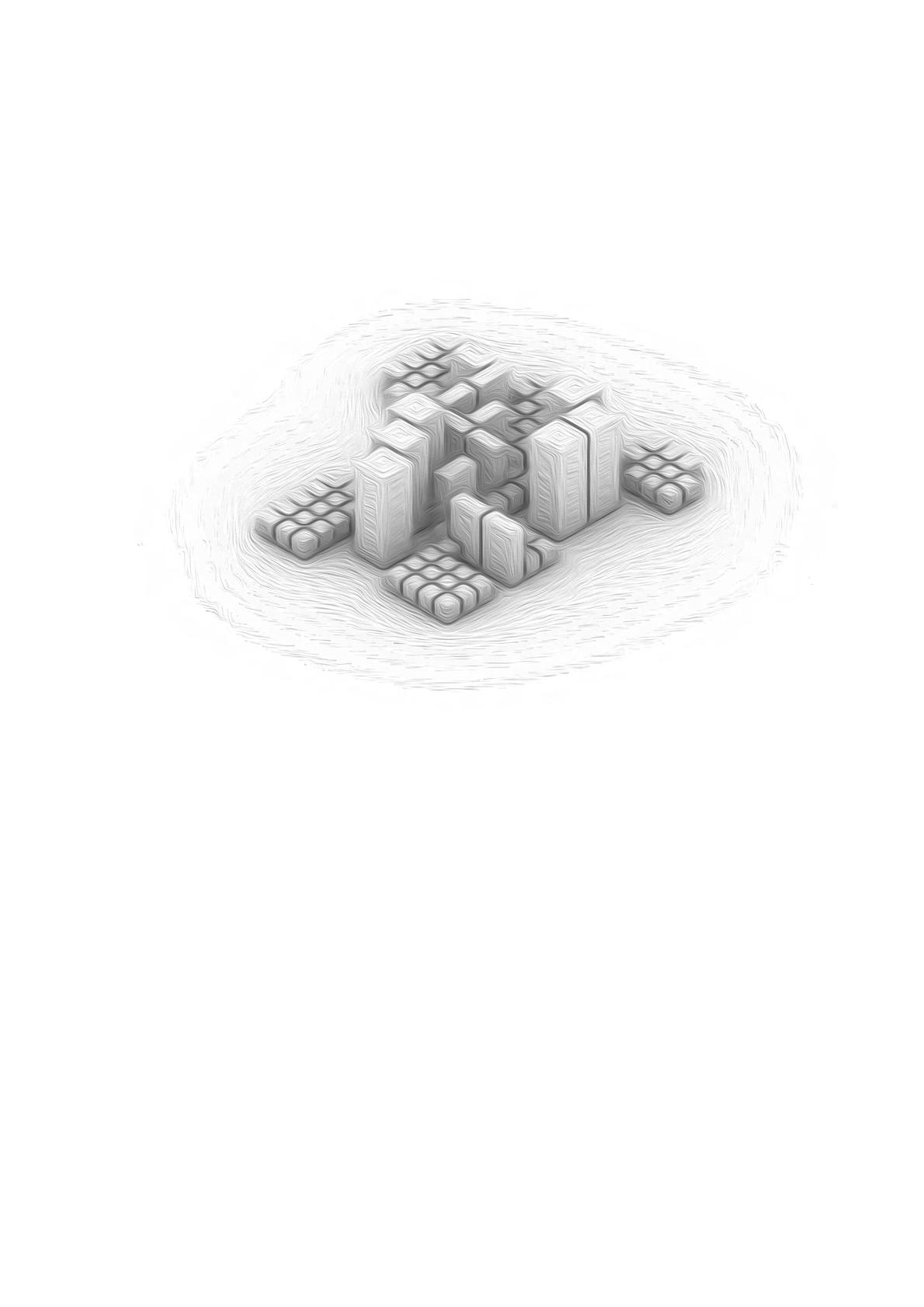
“What traditional cities require is a balance, harmony, and homogeneity. The drama city is based on the greatest difference between the various parts, whether complementary or competing... The drama city does not rely on step-by-step creation of ideals, but in luck, accidents and defects Do speculative development or utilization. Although the model of the peculiar city seems rude and must rely on the original vitality of the parts, the paradox in it actually shows that it is delicate and meticulous. Subtle changes in any part need to readjust the balance between the extremes with the overall adjustment.”
——“Great Leap Forward”
